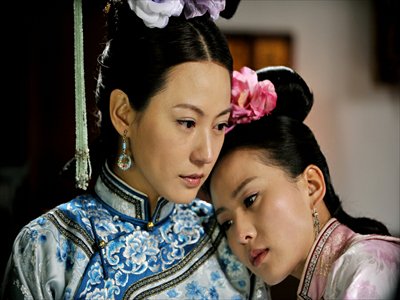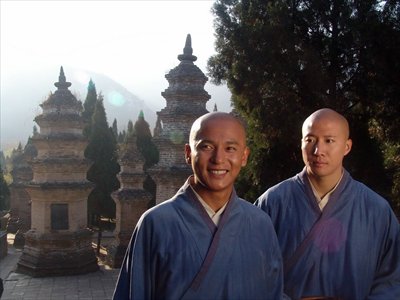What’s sub!



Subtitles bring shows like Treading On Thin Ice, The Shaolin Warriors and World's Finest (from top) new viewers. Photos: IC and CFP
In June 2012, when Eunice You posted a call for fellow subtitlers on Chinese social networking site tianya.cn, she didn't expect to get as many as 20,000 hits and hundreds of enthusiastic replies.
Panda Subtitle Group subsequently formed in the following week. The all-volunteer group dedicates its time to translating and subtitling Chinese TV dramas for foreign fans.
This act, called "fansubbing," differs from officially-licensed translations done by professionals, and isn't new in China. Most earlier groups, though, were inward facing, subtitling foreign TV dramas, movies and animations into Chinese for domestic viewers. Now more fansubber teams like Panda Subtitle Group are outward facing, opening up Chinese-produced entertainment to the rest of the world.
You was inspired to start the group because she enjoys many TV programs from the US, Japan, Thailand and Europe, but felt sorry that there weren't any subbers translating China's own entertainment.
"Bringing in and going out are both important," said You, from Fuzhou, Fujian Province.
Driven by patriotism
Now the Panda Subtitle Group has 28 members, 13 of whom are translators and proofreaders, while the rest synch up the text with the video, add special effects and do postproduction. The members come from all over the world, including the UK, the US, Canada and others.
When asked about why they do such time-consuming work for free, You and her group consider it a noble task.
Yan Xiaoqi, who works in foreign trading business in Shanghai, helps out as a translator in the group. Besides her love for drama, the main reason she joined was that during her interactions with foreigners in her work, she finds many of them are still biased, thinking "the Chinese are poor."
You said she sees a deep-rooted bias against the Chinese in the West. She has heard from friends living abroad that foreigners think people on the Chinese mainland live as though it's still the 1960s.
You thinks much of Western media's portrayal of China is not very objective or friendly, and the few positive reports about China are often critical, too. The average foreigner has limited ways of learning more about China, she said.
Not only does the government need good publicity, You said, but a non-governmental cultural exchange is very crucial as well. If she could score China's overseas cultural publicity, You said she would "only give 10 points out of 100."
"What we can do is very limited. But we have to do something, or we'll explode," You joked.
Driven by patriotism and idealism, You and her members have struggled in selecting the right series to translate.
"Most importantly, there should be positivity," You noted.
In the past year, the group has tried many genres of Chinese programs, including modern comedies, historical dramas, variety shows and others.
There are many issues to consider in choosing a series to translate. Plagiarism, poor-quality special effects and controversial issues that may lead to political misunderstandings all create pitfalls the team must avoid.
The group started translating The Dragon Heroes (Chizi Chenglong, 2005), thinking that the dragon theme would be attractive worldwide, but after subbing a few episodes, they abandoned the project because of the lame, out-of-date special effects.
The directors and screenwriters only play to the appetites of domestic audiences and are not considering the overseas market at the moment, said You.
In the end, the Panda Subtitle Group decided to stick with series that feature love stories set in modern China, starting with Best Time, a 2013 TV series.
"The gorgeous looking men and women attract those young foreigners who like soap operas," said You.
The global community
Another Panda member, Adeline Hu, 20, a college student from Winnipeg, Canada, is in charge of posting the subtitled episodes on YouTube and Viki, a website for sharing fansubbed shows.
Hu said that the series that are popular in China usually also go on to become popular abroad when they get subtitled into foreign languages, and she pointed to Treading On Thin Ice (Bubu Jingxin) as an example. Hu noted that Korean dramas are more popular with the global audience than Chinese ones, which is one of the reasons she joined the group.
One of the works that Hu translated received more than 7,000 hits online, and motivated her to continue subbing. On Viki, many viewers offer to help, too. People work together to translate a Chinese series by taking their English subtitles and putting them into Spanish or French, Hu said.
Panda Subtitle Group isn't the only one of its kind. There are more groups with longer histories, including Heaven and Earth, one of the very first, and Jiang-hu, a group that specializes in the genre of wuxia (martial arts).
Besides patriotic young Chinese, many foreigners are trying their hand at fansubbing Chinese TV shows, too.
When You and her team first started to do research, they found that many good Chinese shows had already been translated and introduced to a wider audience by other fansubbers living around the world. Some are of Chinese ancestry, and some are simply interested in learning more about the Chinese language and Chinese culture at the same time.
Catching the fever
Ever since she watched The Shaolin Warriors, a TV series that was first broadcast in 2008 about the martial arts experts from Shaolin Temple protecting the country from invaders during the Ming Dynasty (1368-1644), Elizabeth Ross, from Mexico City fell hard for Chinese dramas, especially those in the wuxia genre.
Now Ross works with a friend in the Netherlands, translating the subtitles first into English, then Spanish. Ross' first work was on World's Finest (Tianxia Diyi), a series about warriors of an imperial secret service set in the middle of ancient China's Ming Dynasty.
Ross immediately fell in love with the leading man of the show, Taiwanese-born actor Wallace Huo. She sees him as the epitome of modern meeting traditional.
As a loyal fan, Ross is thinking about collaborating with the Chinese fans and making a documentary about Huo for the audience outside of China.
Ross said the names of people and martial arts moves tend to be the most difficult parts to translate. Some shows also have complex Chinese philosophy in them.
"It's important to watch and understand the series before translating," she said. "Maybe we are inventing another story, but we are trying."